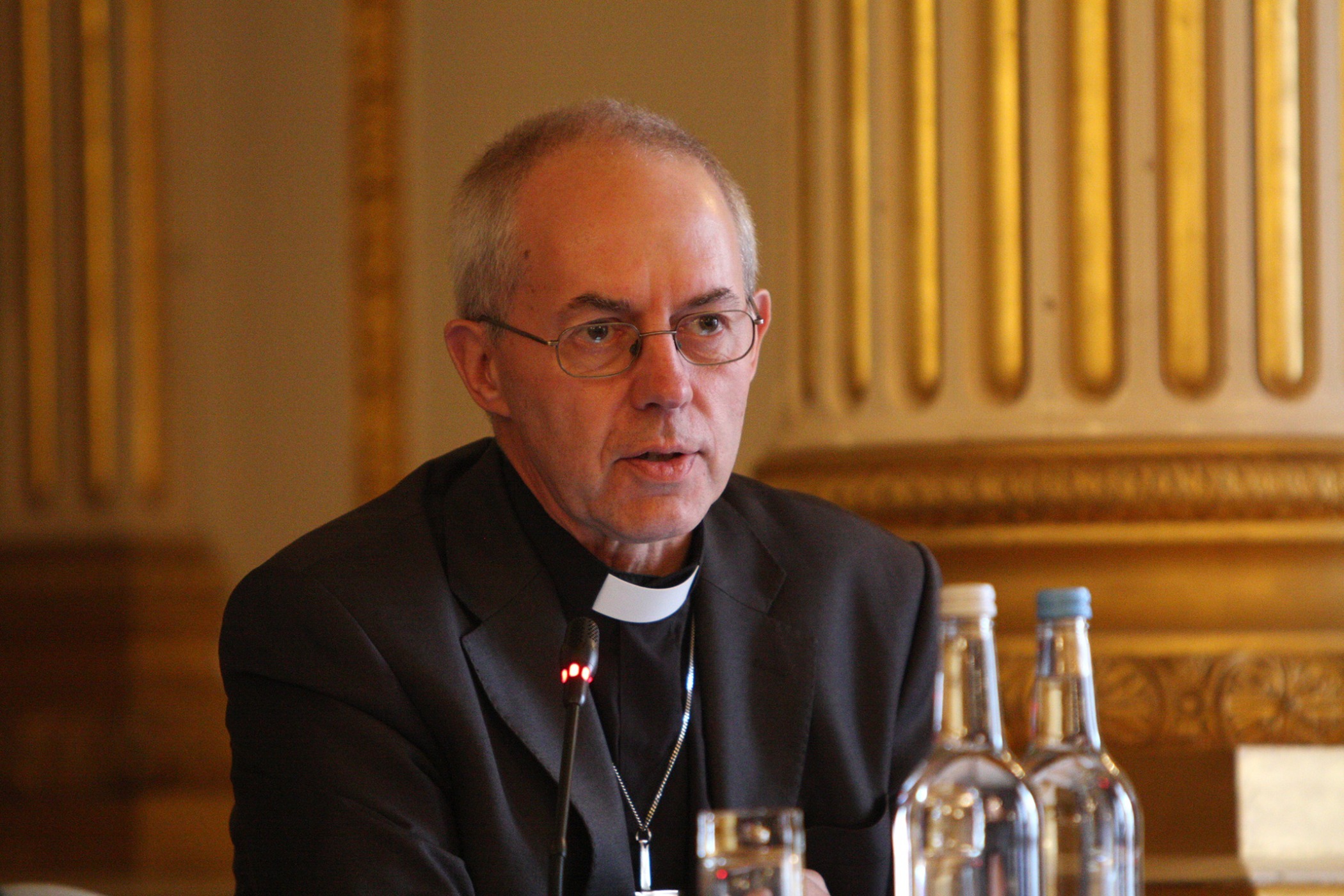
In a statement published on his website on Friday, the Archbishop of Canterbury has denounced the Nigerian archbishop the Most Reverend Henry C Ndukuba for likening homosexuality to a “deadly virus”.
Justin Welby's criticism was unequivocal: “I completely disagree with and condemn this language. It is unacceptable. It dehumanises those human beings of whom the statement speaks. I have written privately to His Grace The Archbishop to make clear that this language is incompatible with the agreed teaching of the Anglican Communion.”
The public statement by the most senior religious figure in the UK was an unusual one. If the Anglican Church makes pronouncements on the matter of homosexuality, they tend to be either condemnatory or, more recently, half-hearted. They have usually appeased neither the faithful nor the gay population. But the Church has realised, fighting a tide of legislation that is granting equal rights to minorities, that in order to survive it cannot call same-sex attraction a disorder, as it used to, nor can it admit that the Bible got it woefully wrong on sexuality.
In this case, however, Welby's rebuke was clear and direct. His statement was immediately endorsed by the Bishop of Chelmsford, the Right Reverend Dr Guli Francis-Dehqani, who said that Ndukuba's comments were “at odds with our agreed teaching”.
Welby's condemnation has tended to be reserved for people outside of the Church, like Donald Trump or the perpetrators of violence or even Boris Johnson. Unfortunately, for anyone hoping that the Church may have reversed its position on same-sex attraction and that this was the first olive branch, Welby softened the blow by citing two paragraphs of a resolution from the 1998 Lambeth Conference: one of these paragraphs affirms that to be homosexual is to live in opposition to scripture; a subsequent paragraph states that the conference cannot approve of the blessing of same-sex unions.
On the blog Erasing 76 Crimes, which spotlights the ways in which anti-LGBTI laws across more than 76 countries do great harm, an article went into more detail about Ndukuba's comments and what had provoked them. The Nigerian archbishop was responding to a 'pastoral' statement made on January 19 by the Anglican Church of North America (ACNA), which, although it affirmed the Christian stance that same-sex attraction is incompatible with scripture, acknowledged that gay people have been made to feel invisible by the Church. There was nothing radical in the statement, which at one point gave credence to conversion therapy, and after a verbose few paragraphs it concluded that it couldn't even use the phrase "gay Christian" because it is too “problematic”.
Proving that within the Anglican Church there are numerous degrees of homophobia, Ndukuba called even this statement “tantamount to a subtle capitulation to recognise and promote same-sex relations among its members”. Strangely, he went on to say that "gay Christian" was as oxymoronic a term as "Christian murderer" or "Christian terrorist" – despite the fact that, ultimately, the ACNA statement essentially came to the same conclusion (albeit with less inflammatory language). He then invoked scripture – Luke 13:20-21 and Galatians 5:9 – to liken homosexuality to “yeast that should be urgently and radically expunged” in case it “affects the whole dough”. He called on the ANCA to condemn the gay “activists” in their midst.
Since becoming Archbishop, Welby has generated headlines for a number of his positions on same-sex attraction both in and out of the Church. He has opposed it, punished churches that allowed same-sex marriage before it was mainstream practice, but also apologised to the members of the LGBTQI community who have been hurt by the Church's position. In an interview with GQ in 2017 he proved that homosexuality is a moral problem with which he is still wrestling, refusing to condemn it outright and acknowledging that same-sex relationships can boast all the faithfulness and stability of opposite-sex relationships. However, in the same interview he also said that trying to reconcile the more conservative Anglican churches in places like Uganda with the more liberal churches in the UK was impossible.

